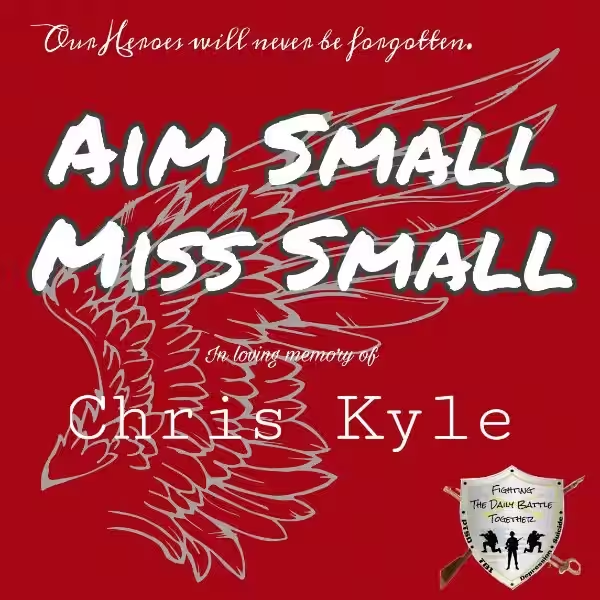
Is the adage “aim small, miss small” a universal truth, or just a catchy phrase? This article delves into the complexities of this seemingly simple golf (and life) principle, examining its practical application and surprisingly nuanced results.
The Allure of the “Aim Small, Miss Small” Principle
The phrase “aim small, miss small” resonates with a certain intuitive appeal. It suggests precision, focus, and a controlled approach. Many golfers, coaches, and even life coaches often invoke it, implying that a concentrated effort on a smaller target will inevitably lead to a more accurate outcome. This principle suggests that by narrowing your focus, you automatically increase your likelihood of success. However, this simple concept is often oversimplified and, as we will explore, not always as straightforward as it initially seems.
This adage often prompts the question: How much of a role does mental focus play in this technique? The idea of channeling your concentration to a smaller area can indeed be mentally empowering. It’s the kind of thinking that might lead one to believe their performance will improve if they focus deeply on their intended target. Yet, the truth is always more intricate than the surface suggestion.
Scientific Exploration of Aiming Small
Recent studies have started to unravel the complexities behind this seemingly straightforward principle. One particular study, “Aim Small, Miss Small: To What Extent Does It Work?”, explored how golfers react to varying target sizes.
This research went beyond the anecdotal, using a controlled methodology to test the effectiveness of aiming at smaller targets across various shot types. The study rigorously analyzed driving, iron shots, and short game shots, taking into account different skill levels and target sizes.
Contrasting Results Across Shot Types
The results of this study were surprisingly mixed. While aiming at a larger target improved average driving accuracy and total distance for both driver and three-metal shots, there was little correlation between smaller targets and greater accuracy in iron shots, short putts, chips, and pitches. This suggests that the “aim small, miss small” principle isn’t a universal solution.
Why the Discrepancy?
The study posits that aiming at a larger target in driving and full iron shots might allow for more natural and less cognitively controlled swing movements. This relaxation of mental control could potentially optimize the efficiency of the movement and lead to improved performance. Conversely, aiming at a small target, demanding greater accuracy, might disrupt the natural flow of the swing and consequently reduce performance.
The Role of Skill Level
Pre-study questionnaires revealed that many participants preferred aiming at smaller targets, especially for shorter shots. However, the research found that this preference doesn’t always translate into better results, particularly in driving or full iron shots. This suggests that skill level and shot type are critical factors in determining the optimal aiming strategy.
The “Aim Small, Miss Small” Quote in Context (Lack of Context)
Unfortunately, without the full context of the quote from Mel Gibson’s movie “The Patriot”, it’s impossible to fully evaluate its intended meaning, its relevance to the specific scene, or even its potential usefulness as a life lesson. This quote’s context is crucial for understanding possible nuances and exceptions.
Beyond Golf: Applying the Principle to Life
While the “aim small, miss small” principle is often discussed in the context of golf, its underlying concept – focusing on smaller goals and breaking down larger tasks – might have broader implications.
The study’s findings highlight the importance of tailored strategies. What works perfectly for a professional golfer driving a ball might not translate directly to a beginner chipping a ball. Similarly, in life, what works for one person might not work for another. One person might find a smaller, focused goal more motivating, while another might benefit from viewing their aim more broadly.
Conclusion: Individualized Approaches
The “aim small, miss small” quote, while catchy, should not be treated as a universal rule. The research strongly suggests that individual needs and preferences should be considered. There’s no one-size-fits-all approach. Successful goal achievement, whether in sports or life, often necessitates adaptation and tailoring to the specific situation. Experimentation, personalized strategies, and understanding the complexity of the situation are more likely to deliver positive results than blindly following a general principle.
Frequently Asked Questions about “Aim Small, Miss Small”
What does the phrase “Aim Small, Miss Small” mean?
The phrase “Aim Small, Miss Small” is a common adage, often used in golf and other pursuits, suggesting that focusing on a smaller target area will lead to increased accuracy. It implies that a more precise and focused aim will, in turn, result in a more accurate outcome.
Is the “Aim Small, Miss Small” quote from a movie?
The provided information does not specify a movie. The phrase is a common saying, not necessarily tied to any particular film.
Does “Aim Small, Miss Small” work in real-life situations beyond golf?
The effectiveness of “Aim Small, Miss Small” is not universal and depends on the specific context. While it may seem helpful in some situations (like golf), the provided information suggests it’s not necessarily a foolproof solution or a valid principle in all scenarios. Applying it in a different context (like attempting to solve a complex problem) might be unhelpful, as the information emphasizes the importance of a specific, tailored approach.
What research has been done on the effectiveness of “Aim Small, Miss Small” in golf?
A study titled “Aim Small, Miss Small: To What Extent Does It Work?” investigated this golf teaching method’s efficacy. The study found mixed results. While aiming at a larger target improved average driving accuracy and total distance for driver and three-metal shots, it had no effect on iron shots, short putts, chips, and pitches.
Why did the golf study show mixed results?
The study found that aiming at a larger target, surprisingly, improved driving accuracy and distance for some shots. The researchers suggest this is because aiming at a larger target allows for less cognitive control over the swing, potentially leading to a more natural and efficient movement. However, for other shots, the advantage was not observed, implying that the effectiveness of aiming small or large might depend on the type of shot and the golfer’s skill level.
What are the limitations of the research on “Aim Small, Miss Small”?
The study highlights that more research is needed to fully understand the nuances of target size preferences, skill levels, and player personality types. It emphasizes that an individualized approach might be more effective than a universal rule.
Is “Aim Small, Miss Small” a universally applicable method in golf?
No, the research indicates that “Aim Small, Miss Small” is not a universally beneficial technique for all types of golf shots. Its effectiveness varies depending on the specific shot type and skill level of the golfer.
Is aiming at a smaller target always better?
The research suggests that aiming at a larger target can be more beneficial for some golf shots, potentially because it leads to a more natural and efficient swing. However, this is not always the case and depends on the type of shot.








